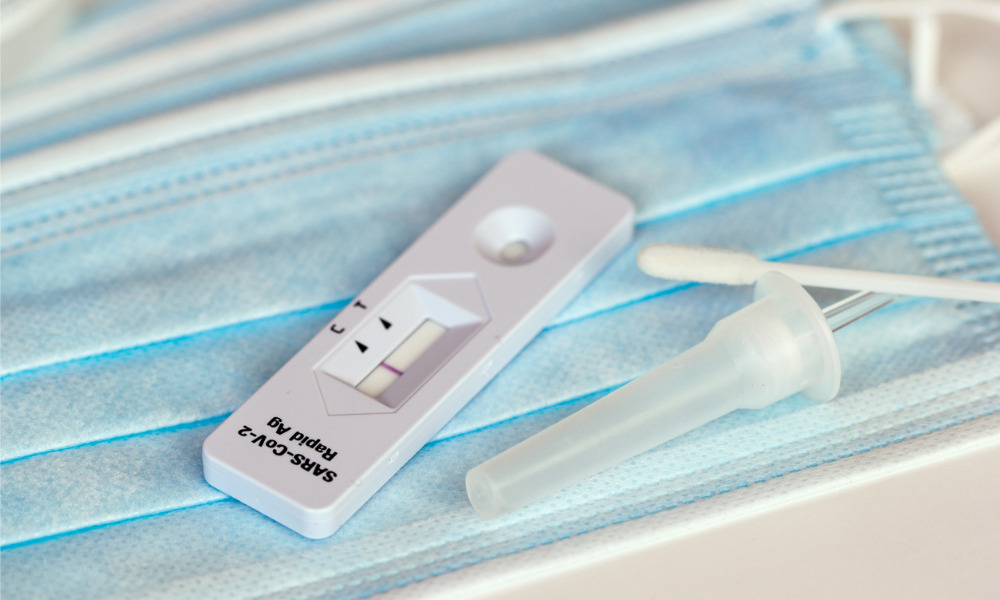
Tests can help keep workplaces safe, but employers will need to understand their legal obligations

The Therapeutic Goods Administration (TGA) has approved the home use of rapid antigen tests for COVID-19 effective 1 November – a move that Kingston Reid partner Dominic Fleeton said will create new workplace challenges for employers.
“To date, PCR (polymerase chain reaction) testing has primarily been a reactive policy,” he said. “But the approval of rapid antigen testing in Australia raises a host of questions that employers will need to work through.”
Fleeton pointed out that with the opening of state borders in NSW and Victoria, a surge in COVID-19 cases is inevitable. Rapid testing is likely to be crucial in keeping workplaces safe, and testing kits are expected to become widely available moving forward.
“After nearly two years of COVID, employers know they cannot eliminate the risk of COVID transmission in their workplace, nor does the law require them to do so,” he said. “But they must mitigate the risk of transmission so far as reasonably practicable. Rapid testing will almost certainly be part of this, so it will be imperative for employers to clearly understand their legal rights and responsibilities before implementing any testing regime.”
According to Fleeton, the questions employers face include the following:
Fleeton suggested that employers may need to engage a third-party provider to formulate an integrated IT solution to ensure employees adhere to testing regimes.
Lawyer Laure Kenworthy of Coleman Greig Lawyers also highlighted some financial implications employers need to consider before introducing rapid testing regimes.
“According to Ai Group Chief Executive Innes Willox, there is significant interest in the RA testing among employers. However, there are wide reports of equally significant hurdles, such as the cost of RA test kits (between $20 and $100 per test depending on the provider) and the intense requirements around their administration,” Kenworthy wrote in a 6 September article published on the firm’s site.